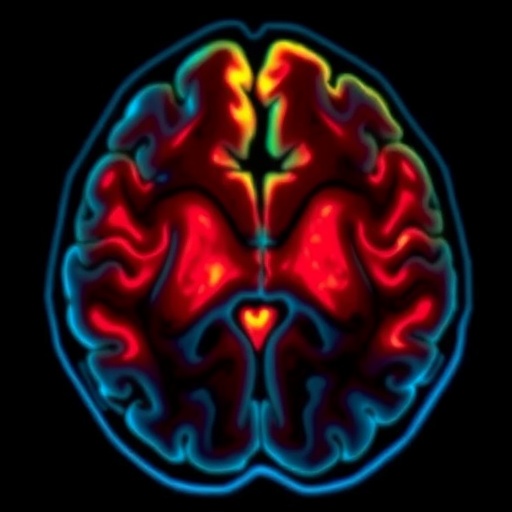Recent research has unearthed alarming insights into the neurotoxic effects of cisplatin, a chemotherapy drug widely used in cancer treatments. This study, led by Altunkaya and colleagues, sheds light on how cisplatin can inflict damage on the hippocampus—a critical region of the brain associated with memory and learning. The findings point toward a dose-dependent mechanism of injury, indicating that as the dosage of cisplatin increases, so does the risk of significant neurotoxicity.
Cisplatin, known for its effectiveness against various types of malignancies, has long been overshadowed by its destructive side effects. The current exploration delves into the specialized cellular dynamics at play within the hippocampus when exposed to this cytotoxic agent. While cisplatin is celebrated for its role in combatting cancerous cells, its interaction with neural tissues raises pressing concerns regarding the lasting effects on cognitive functions and overall brain health.
Neurotoxicity related to cisplatin exposure was previously an overlooked aspect of cancer therapy. However, emerging evidence suggests a stark reality: the brain is not insulated against chemotherapy’s adverse effects. The intricate neural pathways of the hippocampus are particularly susceptible to these toxic onslaughts, underscoring the need for a reassessment of treatment protocols aimed at preserving cognitive health in oncology patients.
Within the realm of neuroscience, the potential for neurodegeneration following cisplatin administration has sparked debates about its long-term repercussions. This study strategically positions itself at the intersection of pharmacology and neurobiology, presenting empirical data that elucidates the pathways of cellular damage. In light of these revelations, healthcare professionals may need to reconsider the dosage and administration routes of cisplatin to mitigate these adverse reactions without compromising its therapeutic efficacy against cancer.
Altunkaya’s research employs rigorous methodologies to analyze the hippocampal tissue of subjects administered cisplatin. The study intricately examines the cellular responses that manifest in the face of increasing drug concentrations. Notably, the data unveil significant alterations in neuronal integrity, synaptic structures, and neuroinflammatory responses, starkly illustrating the risks presented by this common chemotherapeutic agent.
Moreover, the findings foster a deeper understanding of the biochemical and molecular underpinnings associated with cisplatin-induced neurotoxicity. With evidence surfacing that links heightened levels of oxidative stress and inflammation to cognitive decline, the study posits critical questions regarding patient quality of life post-treatment. As such, there is an urgent need for neuromonitoring of cancer patients undergoing chemotherapy to preemptively address the cognitive impairments that might arise.
The implications of this research extend well beyond academia. The potential for cisplatin to affect cognitive health prompts a critical re-evaluation throughout the medical community, especially in how cancer treatments are designed and executed. Oncologists, neurologists, and patients alike must grapple with the potent dichotomy posed by powerful treatments like cisplatin and their debilitating side effects, particularly cognitive decline.
Future research endeavors are poised to explore alternative strategies that minimize neurotoxic consequences while enhancing the anticancer efficacy of cisplatin. Understanding if there are adjunctive therapies or preventive measures that could afford neural protections during treatment could foster a new paradigm in cancer care. The quest for therapies that are less harmful to healthy brain tissue could transform the approach to chemotherapy and ultimately improve the quality of life for cancer survivors.
Additionally, this study underscores the broader implications for understanding neurotoxic substances and their long-term impact on brain health. As the incidence of cancer continues to rise globally, so does the urgency to address the multifaceted challenges posed by cancer treatments. Researchers must collaborate across disciplines, integrating knowledge from oncology, pharmacology, and neuroscience to forge viable solutions moving forward.
As we continue to deepen our understanding of the links between chemotherapy and neurotoxicity, we are reminded that the pursuit of effective cancer treatment cannot be at the expense of cognitive wellness. How we navigate these challenges in light of emerging evidence will ultimately shape the future of oncology and patient care.
The message resonates with both medical professionals and advocates for patient-centric healthcare: it’s crucial to balance the efficacy of treatments with the preservation of neurological health. Only by addressing these complex interactions can we hope to develop strategies that safeguard patients against the adverse impacts of their life-saving therapies.
To conclude, Altunkaya et al.’s findings are pivotal, urging the scientific community to prioritize cognitive health as an essential component of comprehensive cancer care. The research serves as both a clarion call for vigilance in clinical practice and a roadmap for future inquiries into the intricate tapestry of cancer treatment effects, particularly concerning the brain.
Subject of Research: Neurotoxic effects of cisplatin on the hippocampus.
Article Title: Cisplatin-induced toxicity in the hippocampus: a dose-dependent mechanism of damage.
Article References: Altunkaya, M., Ateş, M.B., Bulut, A. et al. Cisplatin-induced toxicity in the hippocampus: a dose-dependent mechanism of damage. BMC Pharmacol Toxicol (2025). https://doi.org/10.1186/s40360-025-01050-7
Image Credits: AI Generated
DOI: 10.1186/s40360-025-01050-7
Keywords: Cisplatin, neurotoxicity, hippocampus, cancer treatment, cognitive decline.
Tags: Altunkaya cisplatin researchcancer treatment side effectschemotherapy brain healthcisplatin dosage impactCisplatin neurotoxicitycognitive health in oncologydose-dependent neurotoxic effectshippocampal damage chemotherapyhippocampus and cancer therapymemory impairment from cisplatinneuroprotective strategies in chemotherapyneurotoxic effects of cisplatin





